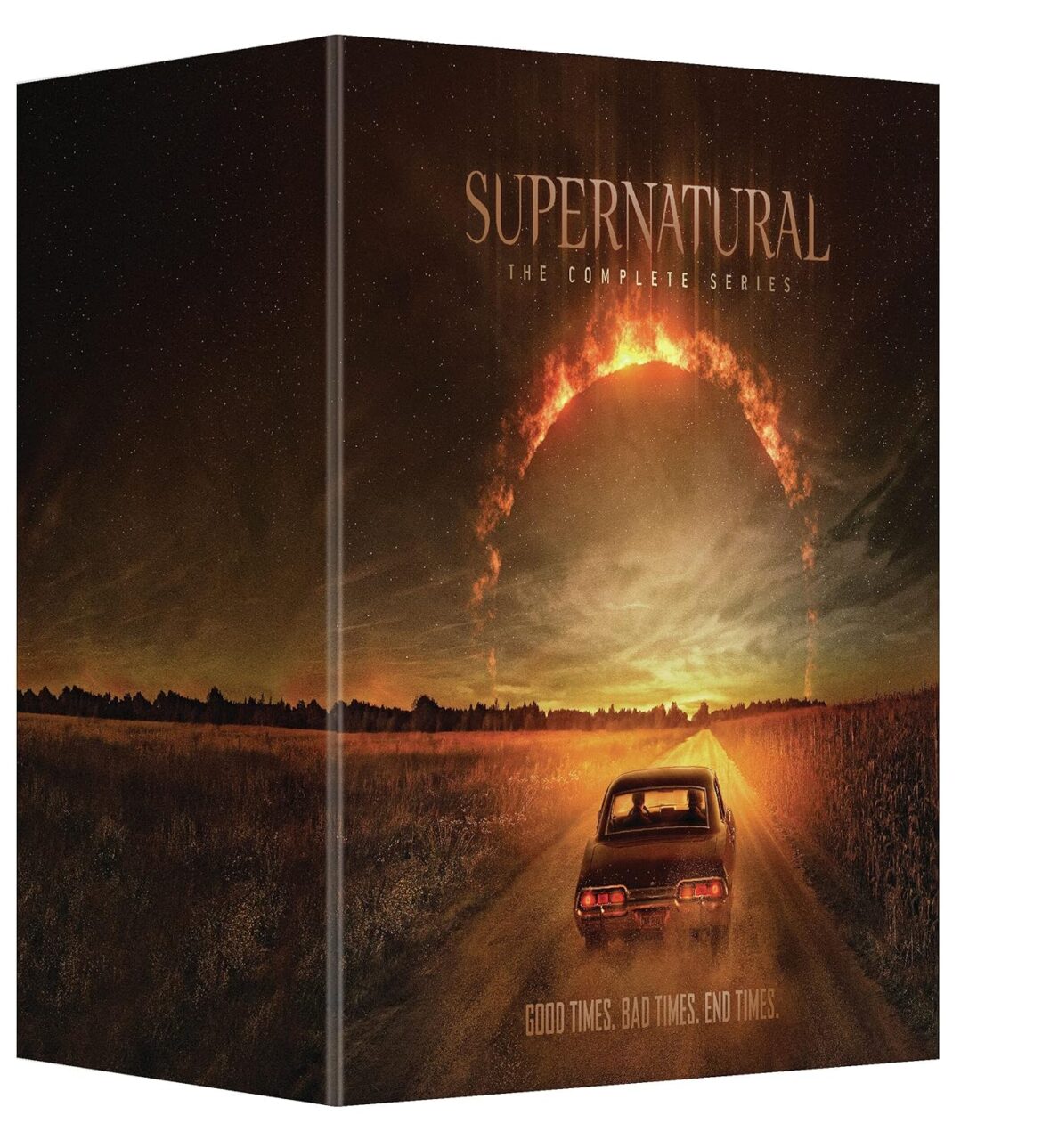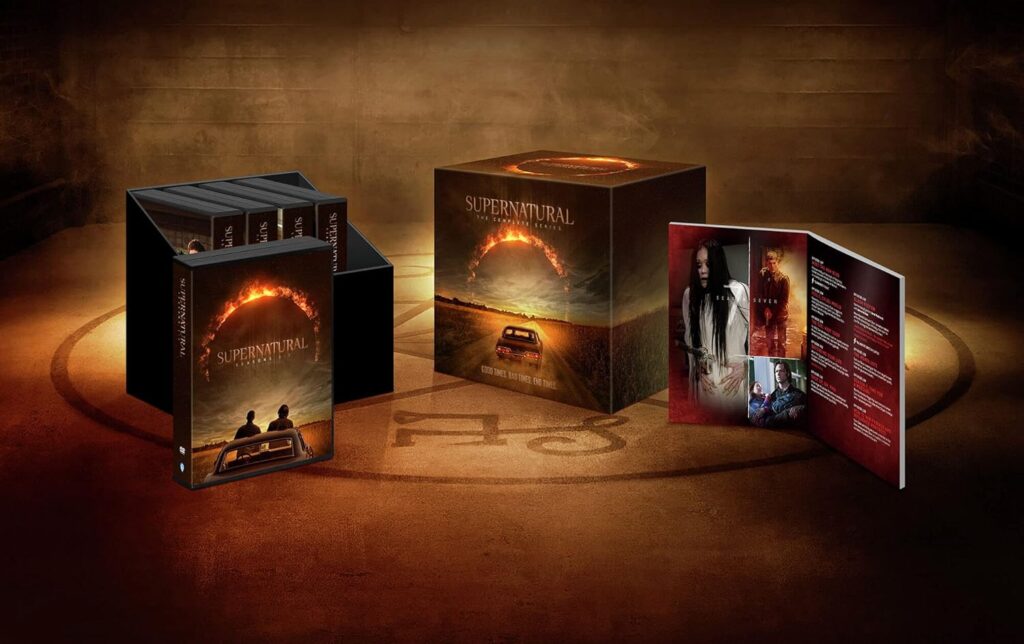
Supernatural, a television show that ran for 15 seasons from 2005 to 2020, is a beloved series that has developed a massive fanbase over its long run. Created by Eric Kripke, the show chronicles the lives of two brothers, Sam and Dean Winchester, as they battle creatures from folklore, mythology, and religious texts, ranging from demons and angels to gods and other supernatural beings. The series masterfully blends horror, drama, humor, and mythology into a captivating narrative. In this review, we will explore the key aspects that make Supernatural a standout show, from its characters and plotlines to its thematic depth, world-building, and influence on popular culture.
Overview of the Plot
At its core, Supernatural follows the Winchester brothers—Sam, the more intellectual and emotional of the two, and Dean, the pragmatic, often brash older sibling—as they hunt down supernatural entities that threaten humanity. The show begins with a mysterious death in their family, prompting the brothers to go on a quest to find their missing father, who was also a hunter. As the show progresses, their journey evolves from personal vendettas against the supernatural into a much grander narrative involving battles between good and evil, angels, demons, and even the fate of the universe.
Each season introduces new story arcs, from the brother’s pursuit of their father’s mysterious agenda, to facing off against powerful enemies like the Yellow-Eyed Demon (Azazel) in season one, to the major apocalypse-level threats posed by Lucifer and other celestial beings in later seasons. Along the way, Sam and Dean encounter a wide range of memorable characters, including friends and foes alike, and uncover ancient prophecies that suggest they may be part of a larger, cosmic battle that spans beyond the mortal realm.
Throughout its 15 seasons, the series weaves together episodic and serialized storytelling, offering standalone episodes filled with monster hunts and urban legends, alongside complex, ongoing narratives. The final seasons culminate in a climactic conclusion to the Winchester brothers’ long-standing struggle with dark forces, exploring the ultimate cost of heroism, sacrifice, and familial bonds.
The Brothers Winchester: Sam and Dean
One of the major driving forces behind the success of Supernatural is the exceptional chemistry between its lead characters, Sam (played by Jared Padalecki) and Dean (played by Jensen Ackles). Their dynamic, a blend of sibling rivalry, unconditional love, and shared trauma, forms the emotional core of the series.
Sam Winchester, the younger brother, is initially portrayed as the more sensitive and reluctant hunter. He left the life of a hunter to attend Stanford University, but after the tragic death of their mother and the disappearance of their father, Sam is drawn back into the family business. Throughout the series, Sam struggles with the supernatural world, his destiny, and his own inner demons, particularly after being imbued with the powers of a psychic, and later, when he becomes involved in the battle between Heaven and Hell.

Dean Winchester, on the other hand, is the more hardened, protective, and impulsive older sibling. From a young age, Dean was raised to be a warrior for the family, trained by his father to hunt the creatures that killed their mother. While Dean often appears tough on the outside, he is a deeply compassionate character who values family above all else, even when it means sacrificing himself for others. His relationship with Sam is often strained, but it is also characterized by moments of deep affection and loyalty.
The character development of both brothers is one of the most compelling aspects of the series. The Winchesters evolve throughout the show, facing immense personal challenges and internal conflicts. Sam’s increasing involvement with the darker side of supernatural power and Dean’s struggles with his own mortality and emotional health make them more than just action heroes—they are complex, multidimensional characters whose arcs elicit sympathy and empathy from viewers.
Jared Padalecki and Jensen Ackles give outstanding performances as Sam and Dean, capturing the nuances of their personalities and the emotional gravity of their situations. Their performances, combined with the writing, elevate the show, making their emotional arcs resonate powerfully.
Supporting Characters and Guest Stars
Over the years, Supernatural has introduced a wide array of memorable supporting characters and guest stars. Among the most notable are Castiel, an angel portrayed by Misha Collins, and Crowley, the King of Hell, played by Mark Sheppard. Castiel, who first appears in season four, becomes a fan-favorite character whose relationship with the Winchesters evolves from that of an aloof, bureaucratic angel to a fiercely loyal ally and friend. His complex moral code and personal struggles with his celestial identity give him a distinct arc that runs parallel to the brothers’ own journey.
Crowley, on the other hand, is one of the more charismatic and entertaining characters in Supernatural. Initially introduced as a cunning and manipulative demon, Crowley’s relationship with the Winchesters becomes more nuanced over time, and he even forms a reluctant partnership with them. His sardonic wit and unpredictable nature make him a compelling figure, and Mark Sheppard’s performance adds layers of depth to the character.
Other supporting characters, such as Bobby Singer (played by Jim Beaver), a father figure and fellow hunter to the Winchesters, and Charlie Bradbury (played by Felicia Day), a hacker and ally who quickly becomes part of the family, help ground the series in its themes of loyalty, friendship, and the importance of chosen family. The series also frequently features guest stars from various genres, including actors from other cult-favorite shows like The X-Files, Battlestar Galactica, and Buffy the Vampire Slayer, all of whom add their own unique flavor to the Supernatural universe.
Mythology and World-Building
Another standout feature of Supernatural is its impressive world-building and mythology. The series often blends elements of real-world folklore and religious mythology with its original creations, offering an expansive and sometimes bewildering universe of supernatural entities. From gods and angels to demons, witches, vampires, and monsters, the show touches upon a vast array of mythologies from different cultures, including Christian, pagan, Greek, and Norse, as well as urban legends and pop culture references.
The show also introduces a unique cosmology in which Heaven, Hell, Purgatory, and Earth are interconnected, with various celestial beings influencing the course of human history. The concept of “The Trickster,” later revealed to be Loki, and the appearance of iconic figures such as Death, God, and Lucifer, turn the show into a complex narrative about divine and cosmic forces. The introduction of the “Mark of Cain” and the story arc surrounding the apocalypse further demonstrate the ambitious scale of the show’s storytelling.
At the same time, Supernatural never loses sight of its origins as a monster-hunting show. Many episodes are standalone, allowing the brothers to face off against a wide variety of supernatural threats. These monster-of-the-week episodes, often featuring urban legends or spooky folklore, keep the series fresh even in its later seasons. The show’s ability to balance serialized storytelling with episodic adventures is one of its greatest achievements.
Humor and Pop Culture References
While Supernatural is undoubtedly a show with dark, serious themes, it also knows how to lighten the mood with humor. The relationship between Sam and Dean is often peppered with witty banter, pop culture references, and occasional self-awareness. Dean, in particular, is known for his love of classic rock music, which serves as a central motif throughout the series, with songs by artists like Led Zeppelin, AC/DC, and Queen featured prominently on the soundtrack.
The show also incorporates pop culture references in a meta way, often acknowledging its own status as a cult favorite. This self-awareness is exemplified in episodes like “The French Mistake” (season 6), in which Sam and Dean find themselves in an alternate universe where they are actors on a TV show called Supernatural. This lighthearted, tongue-in-cheek approach to the genre allows the show to poke fun at itself while still maintaining its dramatic core.
Themes of Family, Sacrifice, and Free Will
At its heart, Supernatural is a show about family. The Winchester brothers’ deep bond, their loyalty to each other, and their willingness to sacrifice everything for one another are central themes that run throughout the series. This theme of family extends beyond just the Winchesters, as the show explores the notion of “chosen family” with characters like Castiel, Bobby, and even Crowley, who become surrogate family members to Sam and Dean over time.
The themes of sacrifice and free will also play an integral role in the show’s overarching narrative. The brothers are frequently put in positions where they must make difficult choices that test their morals, beliefs, and sense of identity. These choices often come with great personal cost, forcing Sam and Dean to confront their own vulnerabilities and the limitations of their power. The series wrestles with questions of destiny, free will, and fate, particularly when it comes to the cosmic battle between Heaven and Hell.
.

.
The Ending: A Satisfying Conclusion or a Missed Opportunity?
The ending of Supernatural was met with mixed reactions from fans. After 15 seasons of high stakes and emotional turmoil, the final episode, “Carry On,” provides closure to the Winchesters’ journey, offering an emotional farewell to both the characters and the fans. The conclusion ties up the long-running narrative threads, including the brothers’ ultimate fates, while also celebrating their legacy as heroes. Sam and Dean’s final moments are poignant, underscoring the deep love and bond that has defined their relationship throughout the series.
Some fans found the ending deeply moving and satisfying, appreciating the emotional resolution and the way the show honored its central theme of family. Others felt that certain plot points were rushed or not fully explored. Despite these varying opinions, the ending of Supernatural serves as a fitting tribute to the show’s journey, with its central message of love, sacrifice, and redemption.
Conclusion
Supernatural: The Complete Series is a testament to the power of long-form storytelling, character development, and the blending of genre elements. The show’s ability to balance humor, horror, drama, and mythology has made it one of the most influential television series of the 21st century. With memorable characters, iconic moments, and an emotional, satisfying conclusion, Supernatural will undoubtedly remain a beloved classic for years to come. Whether you’re a die-hard fan or a newcomer looking for an engaging, binge-worthy series, Supernatural offers something for everyone, making it a truly remarkable achievement in the world of television.
Check out Supernatural: The Complete Series on Amazon by clicking here.
.
